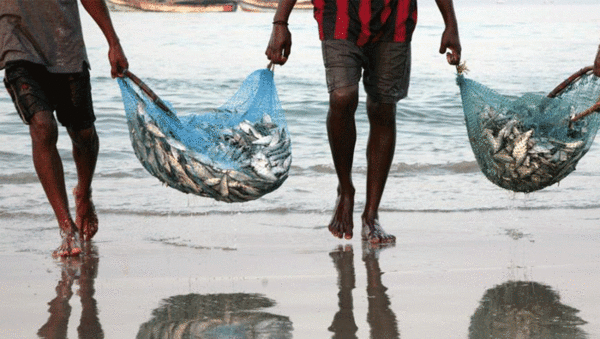
Muscat: Oman is in the process of developing eight more fishing harbours and ports of varying sizes with a sizable investment as part of a comprehensive plan to strengthen the fisheries sector and create additional employment opportunities for youth.
By 2020, as many as 30 fishing harbours or ports are expected to be operational, against 20 such ports now, Dr. Hamed Said Al Oufi, undersecretary of fisheries wealth at the Ministry of Agriculture and Fisheries, told the Times of Oman.
“(However) the total number of ports will depend on the availability of funds for developing these projects. We expect the oil prices to recover, which will enable us to finance these projects,” added Dr Al Oufi.
“We have completed Barka fishing harbour while two other harbours – Al Musanna and Liwa – are under construction and are in an advanced stage of completion. Also, we have five other fishing harbours in the pipeline, which include Masirah, Mahout and Shuwaimiya,” noted Dr Al Oufi.
The undersecretary also said several existing fishing harbours, including Dibba, Mirbath and Khabura, will be modernised or upgraded to help fishermen across the country.
**media[568783]**
500,000 tonnes target
The Sultanate’s fish catch, including production through aquaculture, is expected to touch 500,000 tonnes per annum by 2020, from 270,000 tonnes of fish in 2015.
The over all plan to develop the fisheries sector, applicable from 2013 to 2020, included massive fleet expansion, additional harbours, development of fish markets, support to fishermen, aquaculture development and additional fish processing and logistics services. Oman, with a long coastal line of 3,262 km, has a great potential to develop the fisheries sector to serve global markets. Fisheries sector is one of the promising sectors in diversifying sources of national income, creating job opportunities and ensuring high value-added products.
“We expect fishermen to acquire 500 more fishing boats of varying sizes in the next three to four years. As of now, the fishermen in the country have more than 20,000 fishing boats,” added the undersecretary. These fishing vessels include small fishing boats, traditional fishing boats, coastal fishing vessels and commercial fishing vessels.
Employment potential
Dr Al Oufi expects an additional 10,000-15,000 new employment opportunities to be created by 2020.
“It will depend on the speed at which these projects come up.” Currently, the Sultanate has 46,000 people who depend on fishing for their livelihood.
The new employment opportunities will be available in different areas like fishermen, crew, processing plants, fish marketing firms, feed production, export agencies and aquaculture fields.
Dr Al Oufi said as part of the whole strategy, training will be provided to fishermen on environmental issues, use of modern technology and ways to cut costs. Training will be provided under extension programmes in coastal villages and by creating awareness through media.
Another major focus is to manage the fisheries sector in a proper way by avoiding over fishing. “We have a plan to make sure that our fish stock is sustainable and productive to maximise benefits.”
Duqm integrated zone
Referring to the plans for developing the Middle East’s biggest fishing harbour and an integrated processing zone in Duqm, he said the upcoming facility will include a major harbour, facilities for sea food processing and packaging, facilities for storing raw materials and deep freezers for exports.
The Duqm fishing harbour and integrated processing zone is being developed by the Special Economic Zone Authority at Duqm (Sezad) in collaboration with the Ministry of Agriculture and Fisheries. “We expect something like 60 processing plants (to come up) in one place.” The integrated processing facility, which is coming up close to the harbour, is in the design stage now.
“We expect the construction of harbour to take two to three years and by that time, we will have the infrastructure ready for the integrated zone. By 2020, the whole project will be ready,” added the undersecretary.
Oman government is trying to attract private sector to set up fish processing units in Duqm as part of the overall development programme.